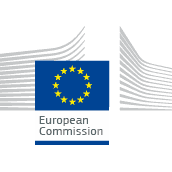
Scaling up integrated care - PJ-01-2018
Deadline: Apr 26, 2018
CALL EXPIRED
CALL EXPIRED
Disadvantaged People
Health Care
Child Care
E-Health
IT Applications
Social and Welfare
Mental health
Non Communicable diseases
The priority in the area of prevention of and integrated care for non-communicable diseases is on transferring and/or scaling-up of existing good and best practices. The main objective is to support the pan-EU collaboration between health and/or social services actors are national, regional or locals levels with a view to supporting Member States to reach the UN/WHO voluntary global targets on non-communicable diseases as well as the Sustainable Development Goal 3.4.
- Through supporting the transfer of best practices from one Member State to a group of others benefits may be achieved through reduced (co-) morbidity/mortality and an increase of well-being for citizens and patients, which supports cost containment in health systems and contributes to increasing the cost-effectiveness of these..
- In addition knowledge will be gained about how best practices can be transferred or scaled-up.
- This work also will produce important information to help reporting on the main indicator of Objective 1 of the 3rd Health Programme with respect to best practices being implemented by Member States.
In order to be able to measure the results, indicators will be agreed with the Member States which are planning to participate in the project and published in the guide for applicants.
The implementation of the best practices will be closely monitored by the Steering Group on Promotion and Prevention in order to use the lessons learned for subsequent priority setting and best practice transfers.
Integrated care
Integrated care seeks to improve patient experience, outcomes of care and effectiveness of health systems (known as "triple aim") through linkage or coordination of services and providers along the continuum of care. Integrated care is multidimensional. For patients with chronic conditions in particular, integrated care aims at improving or maintaining an individual's functional status, prolonging life and enhancing its quality by reducing discomfort caused by symptoms. To do this successfully, healthcare must overcome its fragmentation and also link actively with social cases.
The action proposed under Call B is a vehicle to support care authorities with reforms and modernisations of their health and care systems. The proposed action will aim at
- Assisting care authorities to develop the necessary capacity to implement integrated care. It will build on tools, guidance and knowledge from earlier work in the EIP AHA, EU projects and the EU HSPA expert group.
- Bringing together “early adopters/pioneers” in integrated care in Europe with “followers/green field” care authorities that are keen to make the transition to integrated care.
- Delivering “technical assistance” to the latter type of authorities on:
- "what to consider" when embarking on the planning and design of integrated care,
- "how to design" effective integrated care programmes,
- “how to transfer” good practices from early adopters/pioneers.
In more concrete terms, this may concern how to proceed with putting in place the essential design principles and building blocks for integrated care that were identified by the EU HSPA group and implement:
- new care models that place emphasis on empowering patients, delivering care at home and community settings, and incorporating prevention strategies to preserve the well-being and functional capacity of patients;
- relevant organisational changes (such as joining-up budgets from health and social care; training the healthcare workforce in new skills and roles; organising multi-disciplinary care teams of GPs, nurses, specialists and social care workers; and contracting approaches between purchasers and providers of care services);
- risk stratification tools to focus interventions on people with the highest need;
- integrated patient pathways to realise a continuum across health and social care;
- appropriate use of ICT (eHealth and telemedicine) to facilitate the delivery of care services outside hospitals; and
- tools/frameworks for assessing the quality and effectiveness of integrated care.
Public link: Only for registered users
 EU4 Health Programme (EU4H)
EU4 Health Programme (EU4H)
Please Log In to See This Section